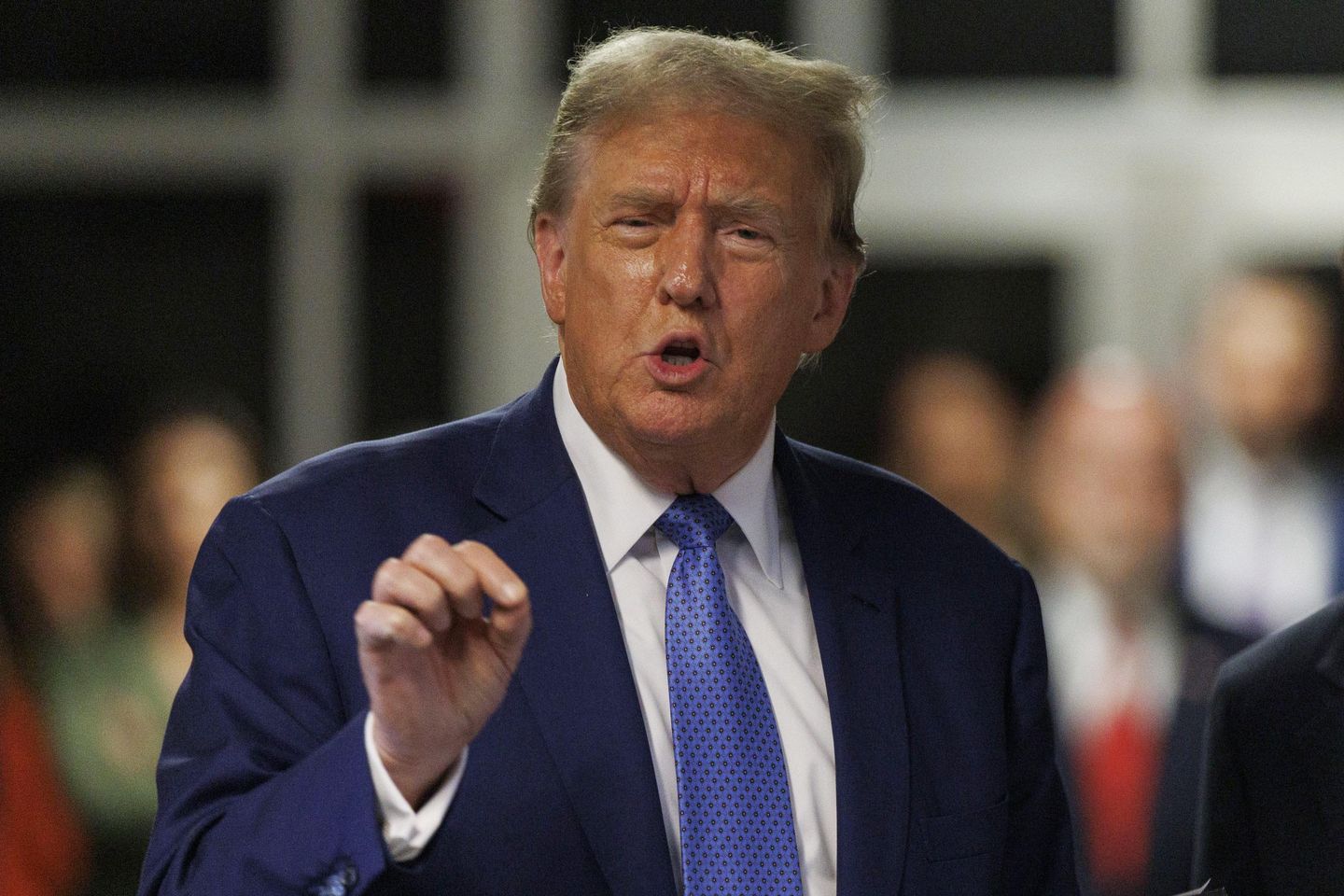The video posted on Donald Trump’s social media network on Monday contained references to a “unified Reich” among hypothetical news headlines that would occur if he were to win the election in November. This choice of language raised concerns and drew criticism from many who viewed it as invoking imagery associated with Nazi Germany and Adolf Hitler’s regime. The term “Reich” is commonly associated with the Third Reich, the Nazi regime that ruled Germany from 1933 to 1945, and its use in this context sparked controversy and backlash.
The inclusion of the term “unified Reich” in the video’s hypothetical news headlines raised eyebrows and led to accusations that Trump was glorifying or promoting authoritarian and totalitarian ideologies. The use of language that evokes imagery of Nazi Germany is particularly sensitive and inflammatory, given the historical context and the atrocities committed during that time. Critics argued that such language is inappropriate and irresponsible, especially coming from a public figure and political leader like Trump.
The video posted on Trump’s social media network is just the latest in a series of controversial statements and actions that have sparked outrage and condemnation. Throughout his presidency and campaign, Trump has been criticized for his divisive rhetoric, inflammatory language, and controversial policies. His use of language that can be interpreted as glorifying authoritarianism or fascism only adds fuel to the fire and further polarizes an already deeply divided nation.
The controversy surrounding the video highlights the power of language and the importance of being mindful of the words we use, especially in a political context. Words have the ability to shape perceptions, influence attitudes, and incite emotions, and using language that evokes imagery of oppressive regimes like Nazi Germany can have serious consequences. In a country as diverse and divided as the United States, it is crucial for political leaders to choose their words carefully and responsibly to avoid further stoking tensions and fueling extremism.
Ultimately, the video posted on Donald Trump’s social media network and the inclusion of the term “unified Reich” in the hypothetical news headlines serve as a reminder of the need for civility, respect, and empathy in political discourse. In a democracy that values freedom of speech and diversity of opinions, it is essential for leaders to engage in dialogue that is constructive, inclusive, and respectful. Using language that is inflammatory, divisive, or offensive only serves to deepen the divides that already exist and undermine the principles of democracy and unity. It is up to all of us, as citizens and as leaders, to choose our words wisely and work towards a more just, peaceful, and harmonious society.









